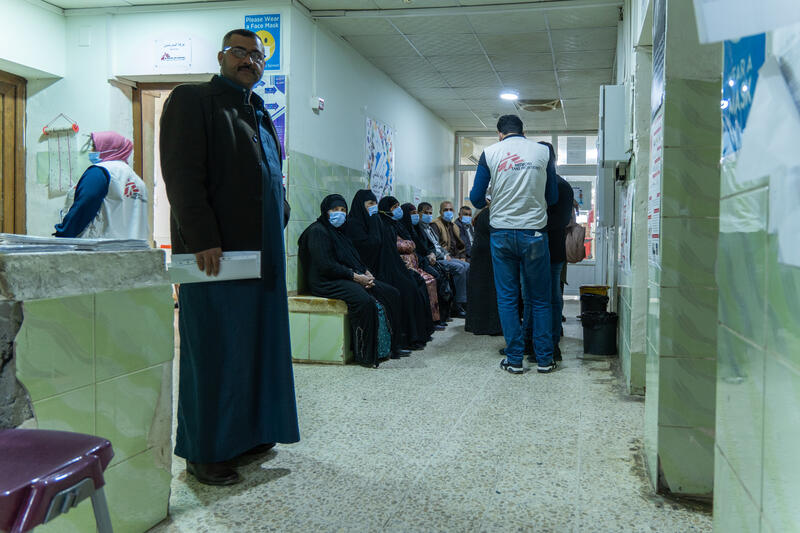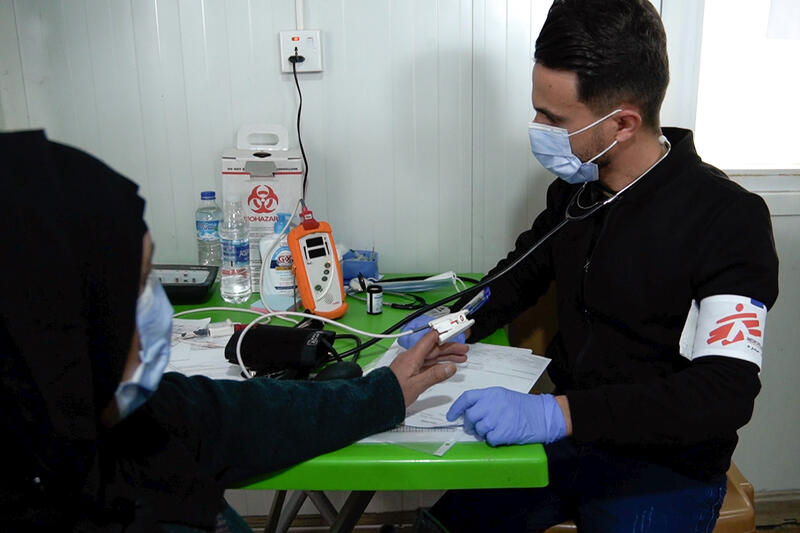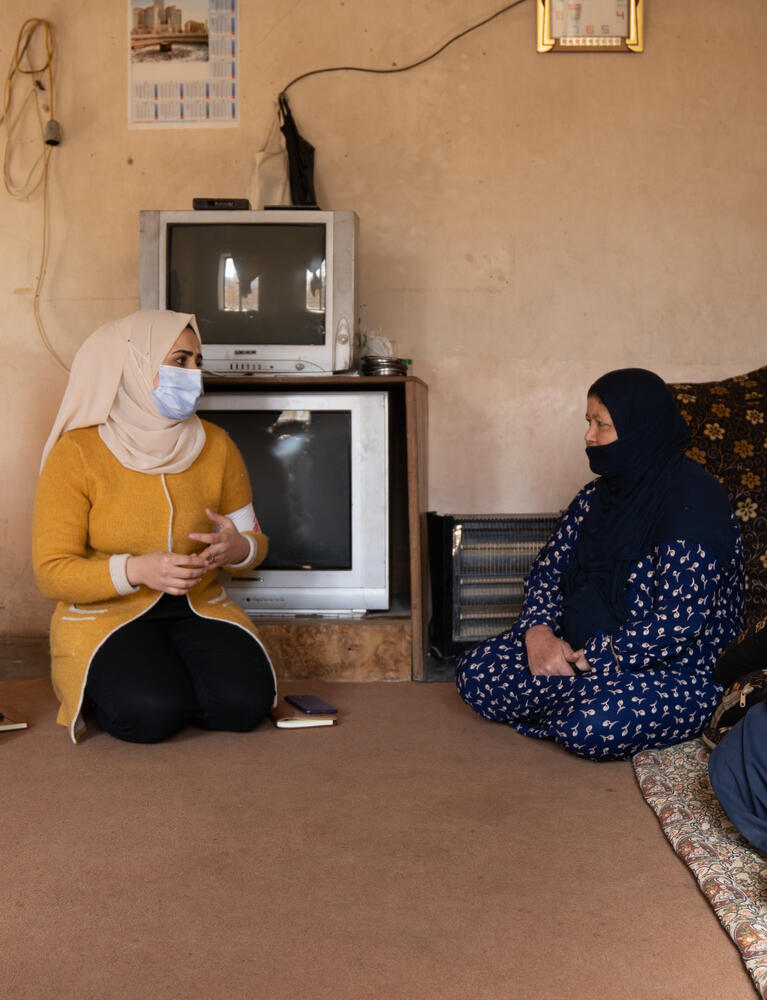Like every morning, Dr. Ramah Essa arrives at the MSF clinic in the Al-Abbasi subdistrict in Kirkuk governorate, northern Iraq, to follow up on patients with chronic diseases. It’s around 8:00 am, and several patients are already waiting for him to arrive. He starts his day with an older woman who suffers from diabetes and hypertension. She regularly comes for routine check-ups.
“And now, we are going test your blood sugar level, so we can see if your diabetes is controlled, and if it is not, we will adjust the treatment,” explains Dr. Ramah to the woman. In this MSF facility, Dr. Ramah and his colleague Dr. Saif receive patients seeking medical attention for Non-Communicable Diseases (NCDs) like diabetes, hypertension, asthma, epilepsy, and psychiatric disorders.
Such conditions require long-term or lifelong medical treatment and close follow-up to avoid developing complications that may lead to critical situations. “We have between 3,000 to 3,500 patients on treatment who visit us regularly in Al-Abbasi clinic”, Dr. Ramah says. “Together with Dr. Saif, we see around 50-60 patients on average every day”.

Since 2016, MSF has been providing free access to healthcare services to those who fled Hawija during the control of the Islamic State group and the ensuing battles to retake the area, the returnees, and those who did not leave. We first ran mobile clinics at the reception sites for people fleeing Hawija. Then we worked at the displacement camps, where those who fled were settling.
But since 2020, these camps have been closed following a decision by the federal government, forcing families to return to their areas of origin and sometimes leading them to face secondary displacement to other regions. Many healthcare facilities were either partially or entirely destroyed during the battles to retake Hawija from the control of the IS group, leaving the returning population with reduced access to much-needed healthcare services.
As the needs of the people and the existing gaps in healthcare provision grew, MSF shifted the activities to focus on NCDs, mental healthcare, and sexual and reproductive healthcare.
Before the battles, the healthcare system had already suffered from shortages in supplies and healthcare workers in this region. But now, with several damaged facilities still not restored or non-functional, along with the additional pressure placed on the system to cater to the healthcare needs of the returnees, meeting the tremendous needs in the area is impossible. People often must travel long distances to attend a medical consultation. Because the facilities close to them are out of service, face shortages, or because they never existed at all.

“Today, we work in both Al-Abbasi clinic and the Hawija primary healthcare centre, which is in the main town of Hawija. Our teams provide care to 7,000 patients suffering from NCDs in both locations combined, and MSF’s capacity to respond is reaching its peak”, says Tetyana Pylypenko, MSF medical coordinator in Iraq.
“While we acknowledge the big needs among the community, we cannot enrol all the patients that need treatment. We are trying to maintain a good quality of care for the patients, and there will be limitations to this if the cohort keeps growing. Limited space at the facilities, supply challenges, and staff availability are among the challenges we could face,” Tetyana adds.
In collaboration with local healthcare authorities, MSF has developed specific criteria for treatment initiation in our facility. Our teams focus on caring for the most vulnerable patients who need urgent treatment. At the same time, we refer more stable patients to the nearby public primary healthcare centre. In this manner, we can split the load with the public clinic and provide better-targeted care to the patients. Still in the Hawija primary healthcare centre, MSF gives women antenatal, postnatal, and family planning consultation but in a separate section from the NCD clinic.
In both Hawija and Al-Abbasi, our teams don’t only receive patients from the big towns but the surrounding villages and even neighbouring governorates as well. People come to the MSF clinics to benefit from free and quality medical care.
Amira and her colleagues, who work with us as community mental heal workers, conduct daily visits to the houses throughout Al-Abbasi to educate people about mental health and sensitize them about MSF’s services. They often meet individuals who exhibit signs of anxiety or stress that suggest they require psychosocial support. They advise people to visit our mental health counsellors at the clinic.

There, Fatin, our mental health counsellor, and her colleagues give patients key information to better understand their condition and provide them with some techniques and adaptation mechanisms to help them overcome and develop sound coping mechanisms.
“The care we provide has to address the difficulties and constraints that patients go through in their life and the trauma and psychological state they are in,” explains Dr. Annie Marie, MSF medical team leader in Kirkuk. “That’s why we keep mental healthcare as an essential part of the services we provide, especially knowing that in recent years, the population here has lived through several traumatic experiences that would require years to heal completely,” Dr. Annie adds.
In the Hawija General Hospital, Wafaa, an MSF midwife developer, spends her day at the MSF-supported maternity department helping midwives who sometimes assist up to 300 women deliver their babies every month. Here, MSF supports the midwives by building their capacities in the delivery room on a daily basis.



